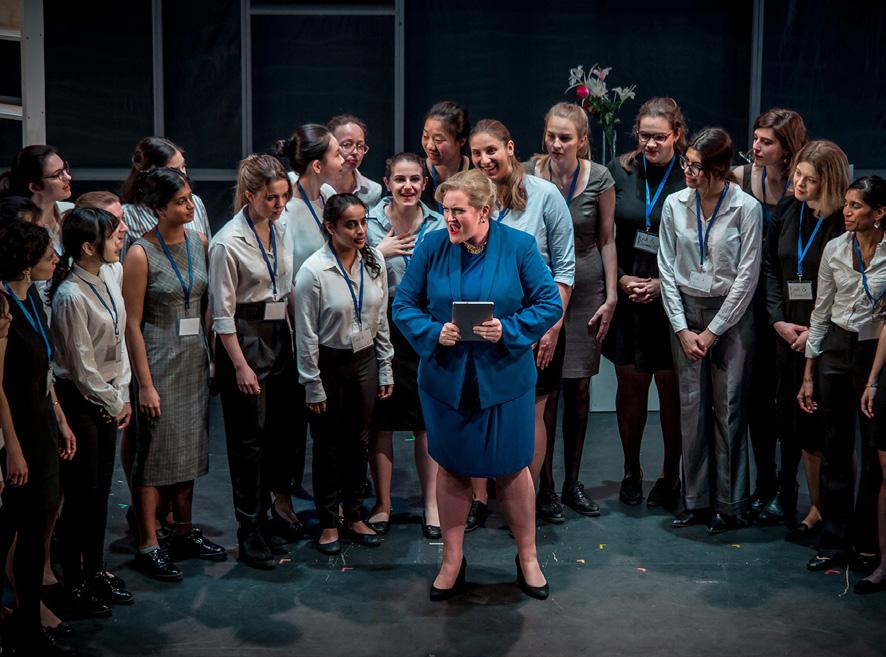Review: Libuše
University College Opera at the Bloomsbury Theatre, London, March 18
Ever since its foundation in 1951 University College Opera has ploughed a distinctive furrow in its choice of annual productions, with numerous first UK stagings and even the odd premiere to its credit. Its latest production, staged at the company’s home base at the revamped Bloomsbury Theatre, was certainly among its most ambitious. Smetana’s ‘festival opera’ was composed in 1871-2 to provide suitable artistic resonance for the coronation as King of Bohemia of the Austrian Emperor Franz Joseph I; but when that ceremony was cancelled the composer withheld his score in anticipation of the opening of the National Theatre in Prague, which it duly launched in 1881. Unfortunately that building burnt down just two months later; Libuše once again provided its reopening event two years later.
Over the intervening nearly 140 years the piece has remained a classic of the Czech repertory – at least on special occasions – without making much headway elsewhere. The first UK performance was given in concert at the 1998 Edinburgh Festival, with Czech principals and the BBC Scottish Symphony Orchestra under Oliver von Dohnányi. This was its first staged UK production.
The reason for Libuše’s neglect outside the Czech-speaking world is its concentration on local legends that are certainly little known elsewhere and whose appeal is essentially nationalistic, most obviously in the final scene when the heroine has a sequence of visions of significant moments in Czech history. Though the director Cecilia Stinton did a generally good job in highlighting the narrative – transferred from legendary times to the modern corporate world of international business – she was unable to clarify a climactic scene that surely requires familiarity with its source material.

Elsewhere the brightness and colour of Holly Muir’s designs, skilfully lit by Alex Forey and enlivened by Ester Rudhart’s choreography, provided a worthwhile frame for a show that gave some potentially portentous material lightness and humanity. Singing an unknown Czech piece in the original, however, did it no favours: an English translation would undoubtedly have succeeded better.
But the cast was regularly impressive, most of all in the clear and vital singing of the title role by the soprano Kirstin Sharpin, which exactly matched the score’s strong Wagnerian tendencies while also giving further notice of this singer’s exceptional potential in the vocal category for which she seems destined. Her instrument contrasted perfectly with the strongly flavoured soprano of Eve Daniell as the morally challenged Krasava. What sounded like a temporary indisposition could not hide the vocal suitability of Robert Davies for the baritone role of Přemysl, while the crucial fight over an inheritance between Ben Harding’s Sťáhlav and James Quilligan’s Chrudoš was well articulated.
Charles Peebles conducted a performance possessing plenty of impetus and lyrical charge, with the orchestra and chorus standing their ground in distinctly challenging musical territory; but, like most amateur choral groups, the UCL Symphony Chorus needs to find a way of recruiting more basses and especially tenors.
George Hall
Published in Opera, June 2019